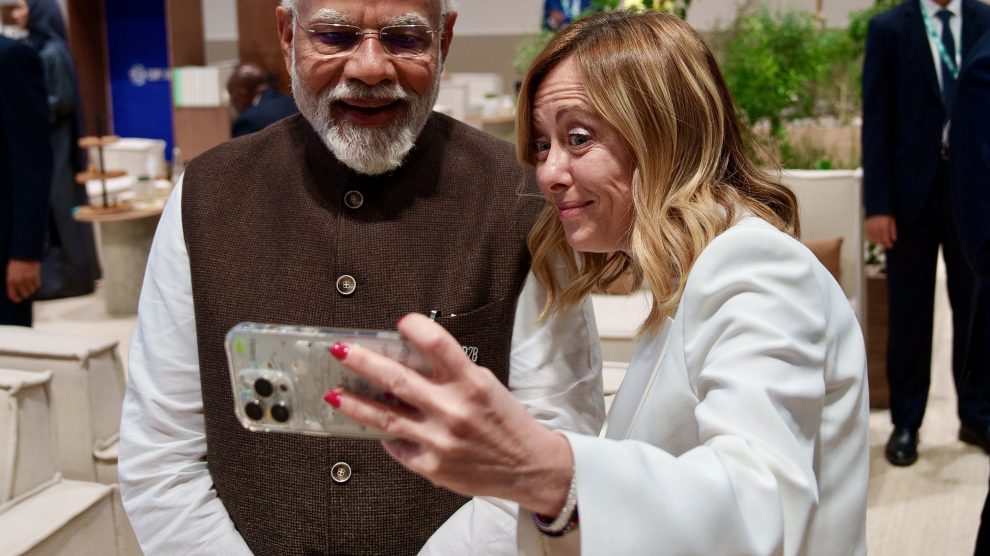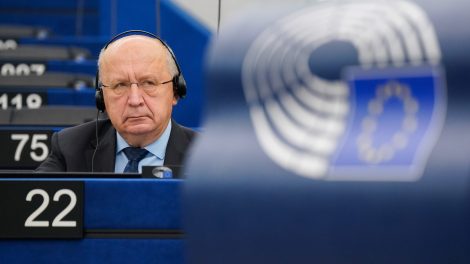At a turning point. Senator Giulio Terzi di Sant’Agata, a retired diplomat and former Italian Foreign Minister, views the Gaza ceasefire as a potential turning point for regional stability, with significant implications for the IMEC—a project aimed at establishing a multimodal connectivity corridor between India, the Middle East, and Europe.
- In an interview with our sister website Formiche.net, he argued that Italy can become a central player in this ambitious geopolitical and economic project through key ports such as Trieste in the northeast of the country. He also suggested that Donald Trump’s potential return to the White House could positively influence its progress.
- The Indo-Mediterranean concept—connecting the Mid-Atlantic and Indo-Pacific regions—has gained strategic traction, with IMEC providing a framework for economic growth and stability.
- Terzi believes that Italy’s role within this corridor represents a critical national interest, both economically and in terms of security.
The bottom line. The evolving international landscape presents Italy with a unique opportunity to realise a long-term political goal: becoming the key reference point in the Indo-Mediterranean region—a position the new Trump administration could particularly appreciate.
- By leveraging strategic investments, diplomatic partnerships, and its geographic position, Italy can establish itself as a central player in the corridor’s geopolitical and economic dynamics.
Terzi’s key points. “The ceasefire in Gaza could pave the way for stability that will benefit projects like IMEC,” said Senator Terzi, a member of Prime Minister Giorgia Meloni’s Fratelli d’Italia ruling party.
- He emphasised that strategic interests will be crucial in shaping the corridor’s future.
- He also highlighted Israel’s central role, stating: “Israel is an essential pillar of IMEC, but the corridor must be built regardless.”
- “For Italy, the optimal option is Trieste as IMEC’s European entry point, thanks to its technical and geopolitical advantages, with Italian and Indian investments already underway.”
- “Italy should capitalise on its strategic position within the Indo-Mediterranean space to drive economic growth, technological development, and security cooperation.”
Trieste and hybrid warfare. Senator Marco Dreosto, a Matteo Salvini’s Lega member, spoke in the Senate yesterday, denouncing hybrid warfare activities targeting the port of Trieste and emphasising its importance for the national interest.
- “Cyber-attacks attributed to Russian groups, such as the one that hit Trieste port, demonstrate that war is not only fought on the battlefield but also in our digital systems, energy networks, ports, and airports. Investing in defence means investing in our security!” he said.
The bigger picture. Under Prime Minister Meloni, the Italian government has consistently emphasised at G7 meetings that stability in the Middle East is essential to global confidence.
- As Senator Terzi suggested, Saudi Arabia’s involvement is crucial.
- Prime Minister Meloni’s upcoming trip to Riyadh following her mid-January visit to the UAE underscores Italy’s commitment to active participation alongside the most important Indo-Med players.
- Italy’s deepening partnership with India further strengthens its position within IMEC, aiming to act as a bridge between Europe and Asia.
What to watch. The impact of the “Trump effect” on IMEC’s progress, particularly on the hoped-for normalisation process between Israel and Saudi Arabia, given Trump’s previous role in the Abraham Accords and his stated goal of reducing regional tensions.
- The challenges posed by Iran’s destabilising activities, with Terzi warning that Iran’s foreign policy, rooted in terrorism and disinformation, remains the greatest threat to regional peace and projects like IMEC.





